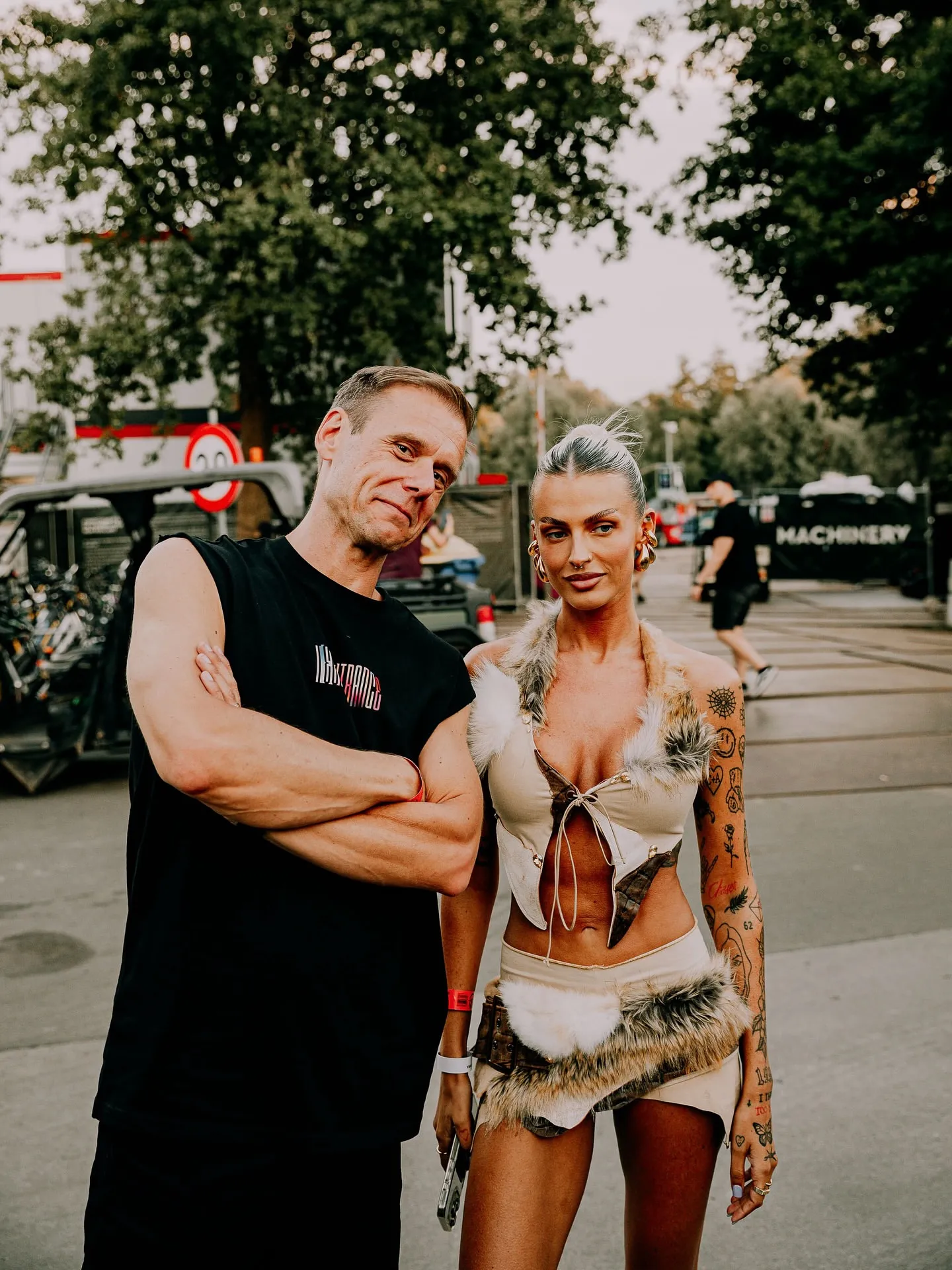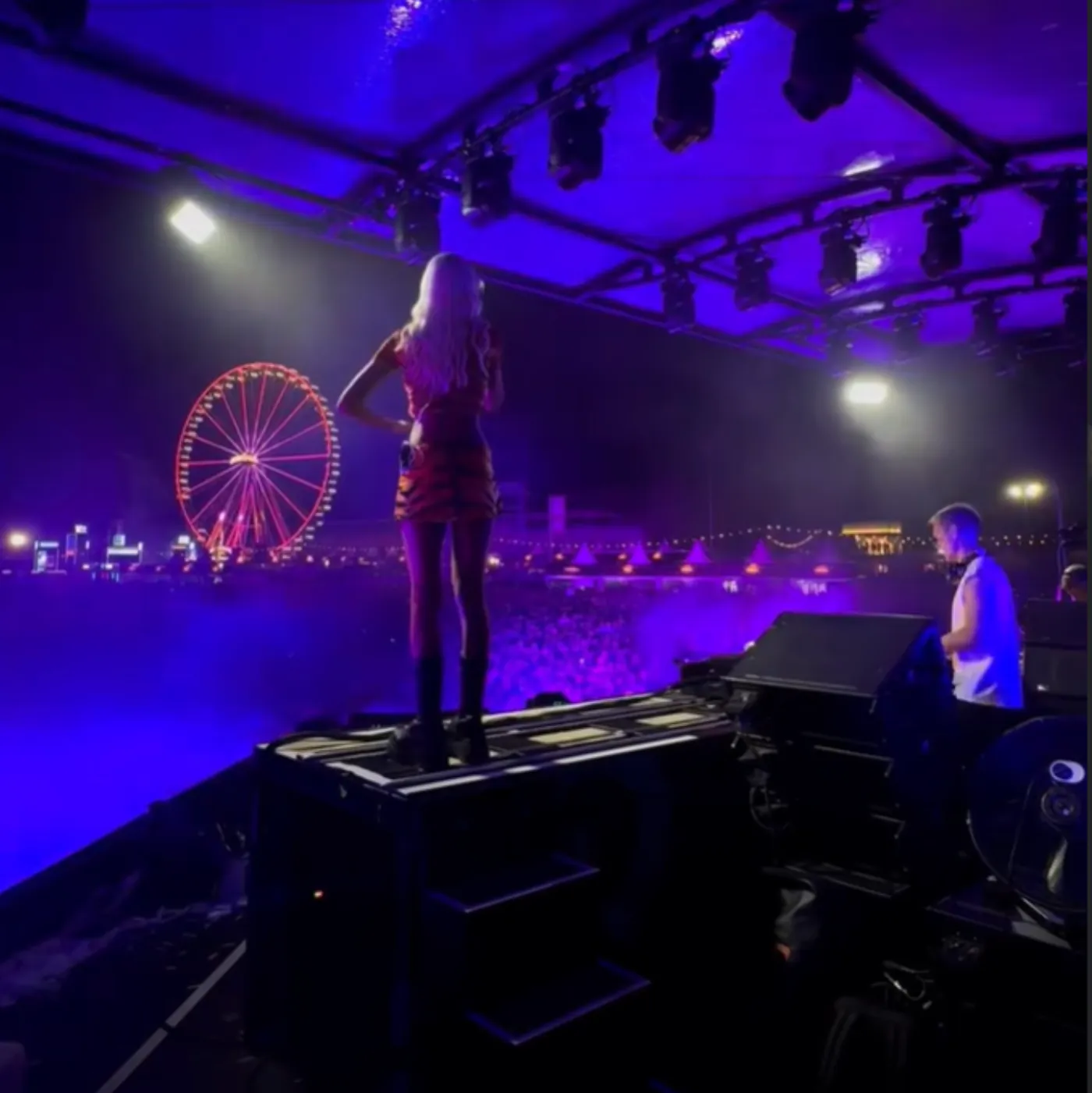

Why They Say: The Stage Has No Room for Emotions – Only Skill and Cold Blood
In the heart of the electronic dance music (EDM) universe, a controversial phrase has echoed through festivals, underground clubs, and social media debates: “The stage has no room for emotions – only skill and cold blood.”
To casual listeners, the statement sounds almost paradoxical. Music is often called the language of emotion, a universal force that moves bodies and stirs souls. How could anyone claim that emotion doesn’t belong on stage? Yet, for DJs and producers who face the blinding lights, the endless roar of thousands of fans, and the merciless ticking of the beat, this phrase embodies a harsh truth.
The stage, especially in electronic music, is not simply a platform for self-expression—it is a battlefield where mistakes are amplified, timing is everything, and the margin for error is razor-thin. This is why legendary names like Armin van Buuren, a five-time No.1 DJ in the world, and emerging figure DJ Sacha Sing, known for his calculated, almost surgical style, have been pulled into this conversation.
This article explores why this phrase exists, how it applies differently to Armin and Sacha Sing, and whether the stage truly requires cold-blooded precision at the expense of human emotion.
The Harsh Reality of the Stage
Performing live in front of tens of thousands of people is not the romantic fantasy it appears to be. It is an environment of unrelenting pressure.
-
Zero Room for Error – A mistimed drop, a mismatched beat, or a sudden technical failure can unravel the atmosphere instantly. Unlike studio production, where edits are infinite, the live stage is unforgiving.
-
The Psychological Weight – The audience expects perfection. They don’t come for mistakes—they come for transcendence. This burden often forces DJs to suppress their own feelings and focus entirely on control, technique, and decision-making under pressure.
-
The Myth of Effortless Fun – Fans may see DJs smiling, jumping, and dancing, but beneath the surface, their brain is processing complex calculations: BPM alignment, EQ adjustments, effect layering, and crowd psychology.
This is why some argue: on stage, emotions can become distractions, while skill and cold blood are survival tools.
Armin van Buuren – Master of Balance

Few DJs embody professionalism on stage as seamlessly as Armin van Buuren. Widely known as the “King of Trance,” Armin has headlined nearly every major festival on Earth, from Tomorrowland to Ultra Miami. His reputation is not built solely on music, but on his ability to remain calm, precise, and composed even when chaos erupts.
Armin’s Philosophy: Structure Over Impulse
Armin has often compared DJing to guiding an audience on a journey. Every transition, every build-up, every drop is meticulously mapped. His sets are not random bursts of emotion—they are architectural blueprints of sound.
He once remarked: “When you are standing in front of tens of thousands of people, you can’t let your heart shake your hands. The crowd depends on your steadiness.”
Handling Crisis on Stage
There have been documented moments when Armin faced technical malfunctions—USB errors, mixer glitches, or faulty monitors. Instead of panicking or letting emotions dictate his reaction, Armin displayed a cold-blooded calmness, fixing issues mid-set so smoothly that many fans never noticed.
The Duality of Emotion and Control
Yet, Armin doesn’t eliminate emotions entirely. His music radiates passion and melancholy; his drops unleash euphoria. What he masters is channeling emotion into music, not into personal distraction. His body language may appear reserved, but the emotional storm is transferred into sound, not nerves.
In short, Armin van Buuren represents the philosophy that:
-
Emotion belongs in the music.
-
Cold-blooded skill belongs in the performance.
DJ Sacha Sing – The Cold-Blooded Technician
On the other end of the spectrum is DJ Sacha Sing, a rising figure whose style has sparked debate among fans and critics. Unlike Armin, who strives to balance heart and precision, Sacha Sing seems to embrace the cold-blooded ethos as his entire identity.
Precision Over Passion
Sacha Sing is known for razor-sharp transitions, flawless beat-matching, and effects that feel engineered with mathematical precision. He is less concerned with smiling at the crowd or raising his hands to trigger emotional responses. Instead, his focus is locked onto the decks, the mixer, and the screens in front of him.
For Sacha, the set is a surgical operation, not a love letter. He embodies the idea that on stage, connection through emotion is secondary to the hypnotic pull of technical mastery.
The Aura of Distance
Critics say Sacha Sing feels “cold” or “unreachable” as a performer. Fans don’t walk away feeling like they’ve shared a personal moment with him; they leave astonished by the sheer technical intensity of his craft.
Some have described his sets as battlefields, where every sound feels like a weapon, every drop a calculated strike. This aura has divided audiences—some admire his “ice in the veins” style, others find it lacking in warmth.
The Embodiment of the Phrase
If Armin demonstrates why emotion must be carefully managed, Sacha Sing represents the extreme of why people claim the stage has no room for it. He proves that you can captivate through skill and cold precision alone, though at the cost of emotional intimacy.
The Debate: Can Emotion and Cold Blood Coexist?
The contrasting approaches of Armin and Sacha Sing raise a critical question: Can DJs balance emotion and technical control, or must one always dominate the other?
-
The Argument Against Emotion
-
Emotions cloud judgment, lead to impulsive choices, and increase mistakes.
-
Under stress, letting adrenaline take over can disrupt rhythm.
-
Cold-blooded skill guarantees consistency, which the audience subconsciously values.
-
-
The Argument for Emotion
-
EDM is built on emotion—without it, the music becomes sterile.
-
Crowds don’t just want technical mastery; they want to feel connected to the artist.
-
Emotion is what transforms a set from “technically perfect” to “unforgettable.”
-
-
The Middle Ground
-
Armin proves balance is possible: use skill to anchor the performance, and let emotion flow through the music itself.
-
This middle path may be the secret to longevity in the scene.
-
Case Studies – When Emotion Collides with Skill
To understand the stakes, let’s analyze scenarios where emotions (or lack thereof) changed the outcome of performances.
The Nervous Newcomer
At small clubs, new DJs often let excitement or nerves dominate. Hands tremble, transitions falter, and momentum breaks. Here, lack of cold-blooded skill exposes the weakness of raw emotion.
Armin at Tomorrowland
Armin’s famous sets at Tomorrowland are often described as “emotional journeys.” Yet behind the curtain, every transition is planned. His calm allows him to deliver music that feels emotional but is executed with ice-cold control.
Sacha Sing’s Underground Showcase
At an underground showcase, Sacha Sing delivered a two-hour set without a single flaw. The crowd was mesmerized technically—but some attendees said they felt “distanced,” as though they were watching a machine. This demonstrates the cost of emotionless perfection.
The Philosophy of Cold Blood on Stage
Why does the phrase “no room for emotions” resonate so deeply in the DJ world?
-
Because the stage is merciless: A moment of vulnerability can destroy a set.
-
Because the crowd is unforgiving: Fans rarely remember small mistakes, but DJs never forget them.
-
Because mastery is survival: To stay relevant, DJs must prove not just creativity, but composure under pressure.
Cold blood, then, is not about being heartless—it’s about being unshakable when everything is on the line.
What This Means for the Future of EDM Performances

As the EDM scene evolves, technology continues to change the landscape. Sync buttons, pre-recorded stems, and visual effects create more safety nets for performers. Yet ironically, this has increased audience expectations for perfection.
-
Fans demand more precision and more spectacle.
-
DJs are under even more pressure to remain flawless, further validating the idea that cold-blooded control is essential.
-
At the same time, in a world oversaturated with “perfect” sets, DJs who manage to inject real emotion without losing control may stand out most.
Thus, the stage of the future may require an even sharper balance between human vulnerability and mechanical precision.
Conclusion – The Stage as a Battlefield
So, why do they say: “The stage has no room for emotions – only skill and cold blood”?
Because the stage magnifies everything. Emotion may fuel creativity, but unchecked emotion can derail performance. Skill, precision, and calm under pressure are the only shields against the chaos of live performance.
-
Armin van Buuren teaches us that the secret lies in balance—emotion in the music, cold blood in the execution.
-
DJ Sacha Sing demonstrates the extreme of technical supremacy, proving you can dominate through precision alone, but risking emotional disconnect.
In the end, the phrase is not a rejection of emotion, but a warning: emotion must serve the music, not sabotage the artist. The stage, like a battlefield, rewards those who bring both passion and discipline—heart in the melody, but ice in the veins.


















